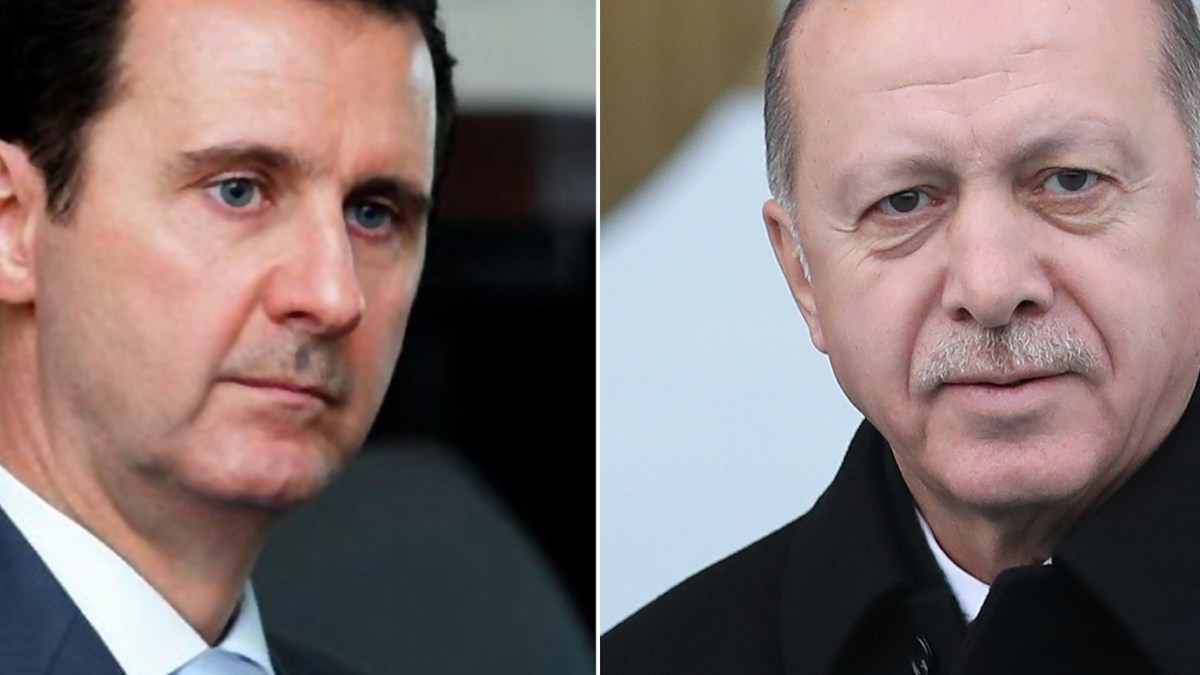After recent comments by Turkish Foreign Minister Mevlut Cavusoglu about a possible reconciliation between Ankara and Damascus, many have been speculating on this issue.
While no diplomatic breakthrough should be expected any time soon, the purported benefits for Turkey do not stand up to a reality check.
This is what Omer Ozkilcic, an analyst focusing on the Syrian crisis, rebel dynamics and security policy in the Middle East, sees in his article on the British Middle East Eye website, referring to the important statement made by Turkish President Recep Tayyip Erdogan last week that Turkey does not It aims to change the regime, but is focused on fighting terrorism in Syria.
Since then, Cavusoglu has said that Ankara is ready to talk with Damascus without any preconditions.
The writer believes that these statements serve two main goals: responding to Russian pressure, and addressing domestic political considerations.
The opposition argued that reconciliation with the Assad regime would facilitate the return of refugees to Syria, and that the Turkish government's intransigence was the only obstacle.
Turkish voters seem to accept this argument.
the idea of reconciliation
Those who support the idea of reconciliation with the Assad regime in Ankara believe that it will facilitate the return of Syrian refugees and help in the fight against the Kurdish People's Protection Units.
They hope that Russia will genuinely support this rapprochement, as Moscow focuses on Ukraine and aims to avoid getting stuck in Syria.
But the first reminder of the facts in Syria, the writer says, came from its foreign minister, Faisal Miqdad, who this week accused Turkey of supporting terrorism and demanded the complete withdrawal of Turkish forces from Syria and an end to aid to the Syrian opposition.
For close observers of the Syrian conflict, these observations were entirely predictable.
The Assad regime has previously described Turkey as "one of the main sponsors of terrorism" because of its support for the Syrian opposition.
Expectations between the Turkish public and advocates of reconciliation must be subject to reality scrutiny, which says the prospects for reconciliation between Ankara and Damascus are bleak.
The writer commented that the expectations between the Turkish public and advocates of reconciliation must be subject to reality scrutiny, which says that the prospects for reconciliation between Ankara and Damascus are bleak.
He said that when it comes to the return of Syrian refugees, it is interesting that advocates of reconciliation seem to have ignored the experiences of Lebanon and Jordan, both of which have normalized relations with Damascus.
Since 2019, only about 40,000 Syrians have returned from Lebanon to Syria, while thousands of other refugees have entered Jordan.
The Jordanian government is now facing a drug smuggling problem, as the Assad government has become a huge producer of Captagon.
existential threat
In Turkey, the chance of refugees returning to regime-controlled Syria seems unlikely amid regular military clashes near the Turkish border.
On the other hand, the areas near Lebanon and Jordan are completely under the control of the Assad regime.
In addition, the regime cannot provide for millions of other Syrians, knowing that their presence in the country may lead to another uprising.
Why is the Assad regime taking such a risk?
From the viewpoint of the Assad regime, the Syrian opposition is an existential threat, while the YPG is an internal problem that can be resolved by integrating its forces into the Syrian Arab Army and giving some local governance rights to the Syrian Kurds.
For the Turks, the YPG is a top priority in Syria;
For the Assad regime, the priority is the Turkish-backed Syrian opposition.
Finally, assuming that Russia has a real interest in finding a political solution in Syria amid the Ukraine war is wrong.
Knowing Russia's strategy and disinformation campaigns, it is likely that Moscow will want to buy time and prevent another Turkish-Syrian military operation while it is preoccupied with Ukraine.
The writer concluded his article that Russia knows that it will face a logistical nightmare if it causes a military escalation in Syria, after Turkey closed the Bosphorus and Dardanelles straits and its airspace to Russian planes bound for Syria.
It is likely that Moscow will want to derail Turkey so that the costs of the war in Ukraine come down.
Trusting Russia, which has repeatedly claimed that it has no intention of invading Ukraine, would be a foolish endeavor.

